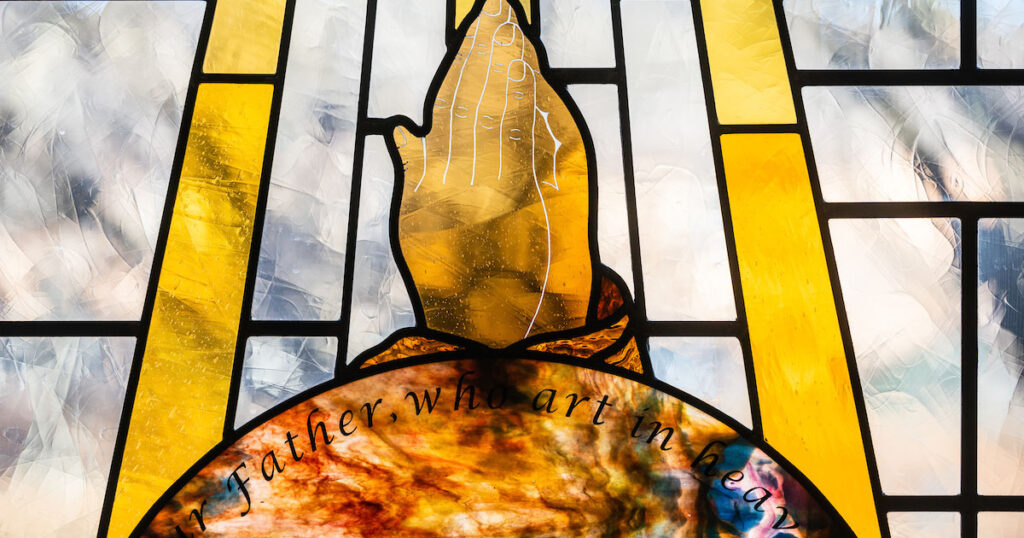Politicians find it expedient to give an occasional nod to God, whoever or whatever they conceive the deity to be. Legislative bodies in the United States have customarily opened sessions with prayer. It is a ceremonial exercise along the lines of the recitation of the pledge of allegiance and is part of the piety of American civil religion that glues many together in bonds of national unity. When Rep. Emanuel Cleaver (Democrat member of the House of Representatives from Kansas City, Mo.), an ordained United Methodist Minister, opened the 117th Congress with prayer last week, he did not so much demonstrate novelty but acted out of the assumption that religion best functions when it embraces pluralism and forsakes all claims to specificity. In such circumstances, prayer becomes a sentimental ornament that decorates national life, offering therapeutic assurance that we are connected in a cosmic web of coexistence.
Yes, at one level, the prayer by Rep. Cleaver might be read as a cute attempt of a clergyman turned politician to be “woke” as he concludes it with not only an “Amen” but also an “Awoman,” never mind that the word Amen, derived from Hebrew, has nothing to do with gender. However, something more is at stake other than grammatical naughtiness. This malformed prayer invites us to reflect more deeply on what it means to pray in accordance with the will of the Triune God and how prayers aligned with that will never measure up to the canons of civil religion.
A now sainted teacher of the church once observed that when orthodoxy goes bad, it gets hard, lifeless and cold as a rock. He continued that when pietism goes bad it becomes soft, decadent and smelly. Now, American civil religion is not the classical pietism of the 17th and 18th centuries, but it does represent a pietism with the endorsement of particular sentiments and a preferred way of life. The strongly held values of American civil religion include tolerance, open inclusivity and self-expression. In the piety of American civil religion, prayer must reflect these three. Rep. Cleaver’s prayer fits the bill, but in doing so, it forsakes any claim to being Christian prayer.
Luther’s distinctions
Martin Luther made many theological distinctions. One of Luther’s distinctions was between “God preached” and “God not preached.” God preached is God as He makes Himself known to us in Christ Jesus, crucified for our sins and raised again for our justification. God preached is God giving us His own name so that we may call upon Him with all boldness and confidence. God not preached is unknowable, always distant and inaccessible. When people try to address God not preached, they are abandoned to the echo chambers of their own deluded imagination. They mold God into whatever the imagination dictates. Such is the “God” addressed in the congressman’s prayer, a “God” who is neither here nor there as “the monotheistic god, Brahma, and the god known by many names.”
How different is prayer to the God who is the preached God, the God and Father of our Lord Jesus Christ. The prayer offered by Rep. Cleaver was a mockery of prayer as Jesus teaches it. Unlike Rep. Cleaver, disciples of Jesus know to pray in Jesus’ own words: the Lord’s Prayer.
“Amen” does not merely sign off on one’s petitions; it indicates the truthfulness of the prayer itself on the basis of God’s command and promise. The Small Catechism says, “This means that I should be certain that these petitions are pleasing to our Father in heaven, and are heard by Him; for He Himself has commanded us to pray in this way and has promised to hear us. Amen means ‘yes, yes, it shall be so’” (SC, III).
Deceived by God’s name
God has commanded us to pray. In the Large Catechism, Luther reminds us that it is our duty to pray because of God’s commandment (see LC III 4). Luther rightly understands the entire Lord’s Prayer to be the fulfillment of the Second Commandment: “We should fear and love God so that we do not curse, swear, use satanic arts, lie, or deceive by His name, but call upon it in every trouble, pray, praise, and give thanks” (SC, I).
Rep. Cleaver’s prayer “deceived by God’s name” by attempting to identify God apart from His name. He did not address the God and Father of our Lord Jesus Christ, who revealed Himself to us by His reliable name, but a god of Rep. Cleaver’s own imagination. In Luther’s language, this is God not preached. God has not commanded us to pray to gods of other names. In fact, He strictly forbids it.
In the Small Catechism, Luther notes that genuine prayer is founded not only on God’s command, but also His promise. God’s promise is always prior to our praying. In his “Babylonian Captivity of the Church” (1520), Luther asserts: “For God does not deal, nor has he ever dealt, with man otherwise than through a word of promise, as I have said. We in turn cannot deal with God otherwise than through faith in the Word of his promise” (LW 36:42). There are no promises of God attached to prayers like the one uttered by Rep. Cleaver. God has not revealed His salvation in the concept of a monotheistic God, Brahma, or the multitude of gods manufactured by the human mind.
Christians pray in Jesus’ name for He alone is the way, the truth and the life (see John 14:6), recognizing that “there is salvation in no one else, for there is no other name under heaven given among men by which we must be saved” (Acts 4:12). Apart from Jesus Christ, human beings have no saving access to God. Luther reminds us that if we seek God apart from Christ, we end up with the devil, thus making demonic prayer a devastating possibility.





Your throne, O God, will last forever and ever; a scepter of righteousness will be the scepter of your kingdom. You have loved righteousness and hated wickedness; therefore God, your God, has set you above your companions by anointing you with the oil of joy. Psalm 45:6,7
The Son is the radiance of God’s glory and the exact representation of his being, sustaining all things by his powerful word. Hebrews 1:3
This is how Jesus Christ as God reigns on Earth as it will be in heaven. As my mother was fond of saying, “It is what it is. Complain or let faith bloom.”
I received the Lord Jesus Christ as my Saviour when I was a six-year-old attending a Lutheran elementary School in Greensboro, North Carolina. The Lord Jesus stated that whatever we afk the Father for in His Name, we will receive of Him. In the Lord’s Prayer, He taught His disciples, we are to pray “Forgive us our trespasses,” That is consistent where, in other places, the Bible tells us, “whatsoever we ask, we receive of Him, because we keep His commandments and do the things that are pleasing in His sight.” and the Bible also says, “If I regard iniquity in my heart, the Lord will not hear me.” Also “If a person turns his ear away from hearing God’s law, even his prayer will be an abomination.”
The Lord Jesus also said that His disciples will be known by the love they have for one another and inasmuch as we have done it to the least of His brethren, we have done it unto Him. So the way we treat unborn babies, minorities, disabled people and the elderly is the way we treat the Lord Jesus Christ Himself.
Thank you for for the clarity. When praying is not done correctly it is a total embarrassment. Washington tries to cover all religions when they can not understand that praying is important for this nation.
No relation as far as I know.
Is the author related to Rev Waldemar O. Pless of Wauwatosa? He confirmed me in 1959…very fond memories of his teaching.
No relation as far as I know.